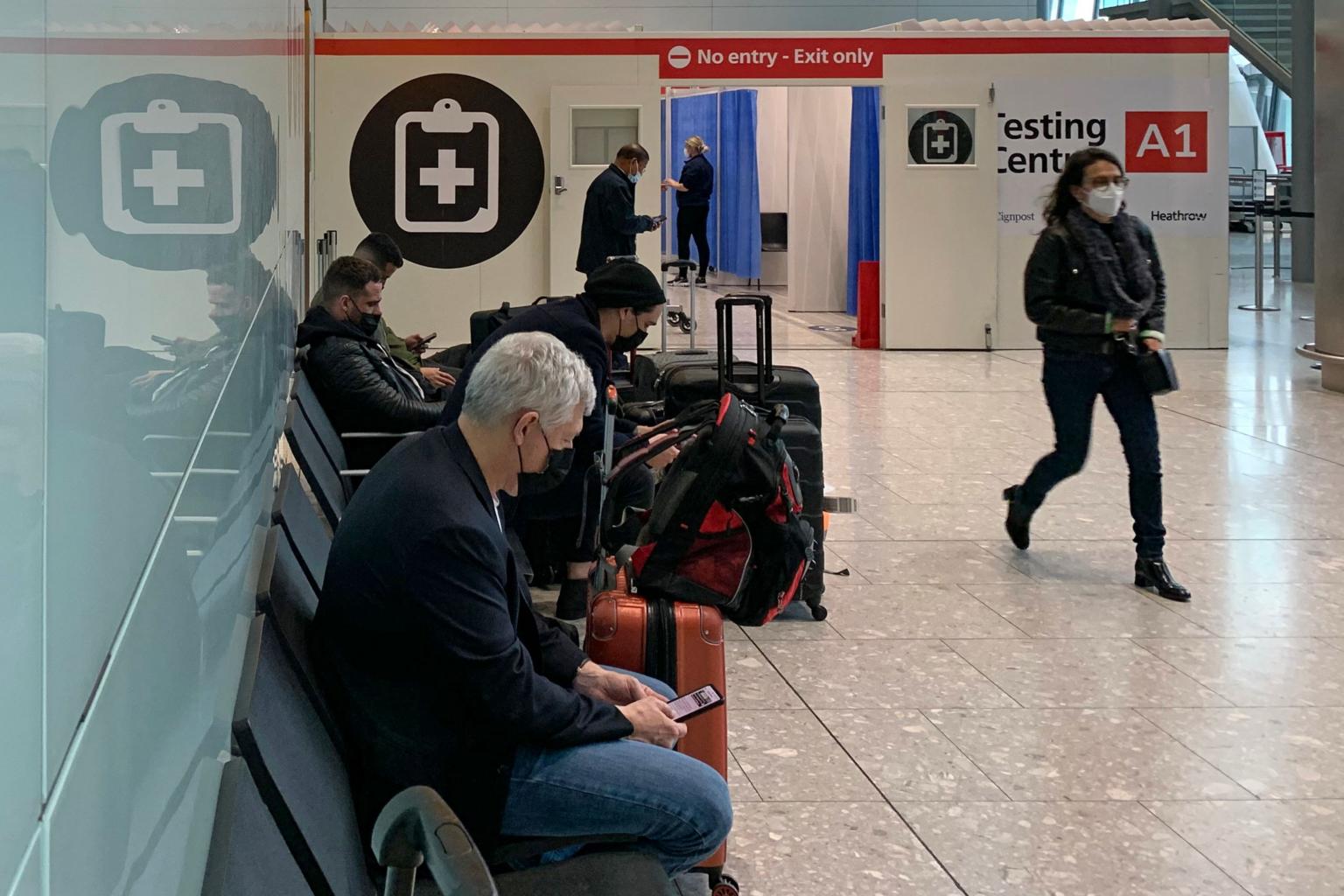Britain defends new Covid-19 tests that riled travel industry
Sign up now: Get ST's newsletters delivered to your inbox

All travellers will have to take a Covid-19 test within 48 hours of their departure for Britain.
PHOTO: AFP
Follow topic:
LONDON (BLOOMBERG) - Britain's decision to force all travellers entering the country to take a pre-flight Covid-19 test, threatening to upend the peak Christmas season for airlines, reflects a balanced approach given the threat of the Omicron variant, said Deputy Prime Minister Dominic Raab.
The government had announced that all travellers, regardless of their vaccination status, will have to take a Covid-19 test within 48 hours of their departure for Britain. The move comes a week after the first Omicron cases were confirmed in Britain, which prompted the government to require polymerase chain reaction (PCR) test within two days of arrival.
"The blanket reintroduction of testing to enter the UK, on top of the current regime of isolation and PCR testing on arrival is completely out of step with the rest of the world," British Airways said in a statement on Saturday (Dec 4).
Mr Raab defended the latest test decision from both travel industry complaints that it goes too far and from the opposition Labour Party's charges that the government moved too slowly given the Omicron threat.
In the week since the variant was detected in Britain, case numbers have risen to almost 250.
"We will always get the Goldilocks criticism of too much or too little, and I think we've taken the right approach," Mr Raab said on the Trevor Phillips show on Sky News.
"We've focused on the vaccines and boosters and we've got a third of the populations (aged) over 12 with a third vaccine injection," he added.
The government's latest moves, which also include banning flights from southern Africa, is putting more pressure on airlines that were counting on Christmas travel to help ease the losses accumulated during the pandemic.
The risk of a second lost winter has already tanked shares, with the Bloomberg EMEA Airline Index losing 18 per cent in November, its worst monthly performance in more than a year.
Omicron struck at a time when Britain was already struggling with a surge in cases caused by the Delta variant.
The country reported almost 44,000 new Covid-19 infections on Sunday, the fifth consecutive day that cases topped 40,000.
One of the world's most successful vaccine programmes - more than 80 per cent of people over the age of 12 years are double vaccinated - has helped limit hospitalisations and deaths from Delta, though it is still not known how well the shots work against Omicron.
The new pre-arrival test was announced by Health Secretary Sajid Javid on Saturday night, shortly after Transport Minister Grant Shapps said tourists would not require pre-departure testing.
In a recent interview with the Daily Telegraph, Mr Shapps had expressly warned that such a move could kill off the travel sector. On Sunday, he said on Twitter that the interview had been pre-recorded before the severity of Omicron became clear.
"The introduction of pre-departure testing with little warning is a hammer blow to the business travel industry," said Mr Clive Wratten, chief executive of the Business Travel Association.
"Public safety is a priority, but businesses will fail, travellers will be stranded and livelihoods devastated by the lack of coherent plans from government."
Mr Javid also announced that Nigeria would be added to its red list of countries that require a 10-day hotel quarantine at the traveller's expense.
Hours after the first Omicron cases were identified in Britain on Nov 27, the government added more African countries to the red list. A day earlier, Britain suspended flights from South Africa, Namibia, Lesotho, Botswana, Eswatini and Zimbabwe.
Focusing on limiting the virus' entry into Britain after it was already spreading was "a case of shutting the stable door after the horse has bolted", Professor Mark Woolhouse, a member of the Scientific Pandemic Influenza Group on Modelling, said on the BBC's Andrew Marr show on Sunday.
"If Omicron is here in the UK, and it certainly is, if there's community transmission in the UK, and it certainly looks that way, then it's that community transmission that will drive a next wave," he said.
"I think it's too late to make a material difference to the course of the Omicron wave if we're going to have one."

